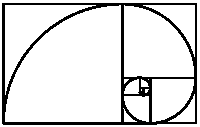Math in the Middle Institute Partnership

Department of Teaching, Learning, and Teacher Education: Master of Arts in Teaching, Summative Projects
Date of this Version
7-2009
Abstract
This paper explores a study of sixth grade mathematics students in a middle school setting. I investigated the effects of assigning Habits of Mind problems related to the curriculum, district standards and objectives to increase problem-solving opportunities and skills. I discovered integrating problem solving into the given curriculum allowed students to make connections to math in an opportune way that evoked communication on paper, interactions with partners or small groups, and presentations of solutions to the large group. Using the challenging Habits of Mind problems deliberately chosen to match specific content objectives within my district at the sixth grade level provided an opportunity for students to get more practice and improve upon their problem-solving skills. Planning and thinking about mathematics in ways that were unique in comparison to the components of instruction I typically used helped me incorporate weekly Habits of Mind problems. Analysis of classroom interactions and students’ solutions as well as the students’ reflection on their own experiences provided evidence that students experienced some difficulty in making their emergent thinking known to peers in a way that would allow for productivity for all involved. As a result of this research, I plan to continue to explore the notion of challenging sixth graders with featured Habits of Mind problems relative to the curriculum based on the positive feedback I gained from this short-term action research project.


Comments
Professional development Institute Partnership, Action Research Project Report, in partial fulfillment of the MA Degree. Department of Teaching, Learning, and Teacher Education. University of Nebraska-Lincoln. July 2009.